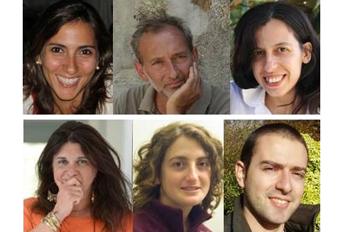Associação Portuguesa de Investigação em Cancro
«No Stomach for Cancer» association awards portuguese researchers
«No Stomach for Cancer» association awards portuguese researchers

The American Association of Patients with Hereditary Gastric Cancer «No Stomach for Cancer» decided to fund with 25 thousand euros a collaborative Portuguese project from Joana Paredes and Raquel Seruca, from Ipatimup - Institute of Molecular Pathology and Immunology of the University of Porto, and Joao M. Sanches, from Institute for Systems and Robotics/Instituto Superior Técnico of University of Lisbon.
The mission of «No Stomach for Cancer» is to support research and unite the caring power of people worldwide affected by stomach cancer. One of their key priorities is to support research efforts for screening, early detection, treatment, and prevention of stomach cancer. In 2015 «No Stomach for Cancer» decided to fund this Portuguese team to develop a pipeline of tests that will allow identifying individuals carrying germline gastric cancer-causing mutations. The project, entitled «Todays present, tomorrow´s future on the study of germline E-cadherin missense mutations», aims to improve the capacity for functional interpretation of germline mutations of the E-cadherin gene.
Functional abnormalities/mutations in E-cadherin gene are the best established cause of hereditary gastric cancer (HDGC). When E-cadherin is not functional in the stomach, gastric cells are at high risk to become cancerous, silently invade the stomach and disseminate without forming a detectable tumour. Due to these cancer features and to the lack of sensitive screening imaging methods, detection and surveillance of individuals at risk for HDGC relies solely on genetics. However, in some families, functional interpretation of genetic diagnosis is doubtful and clinicians cannot counsel the families properly and this is where the Portuguese team will work to cover such a limitation.
In the end of 2016, the Portuguese team aims to offer, under clinical request, such novel functional tests to carriers and families of E-cadherin germline mutations worldwide in order to improve clinical genetic counseling and surveillance.




